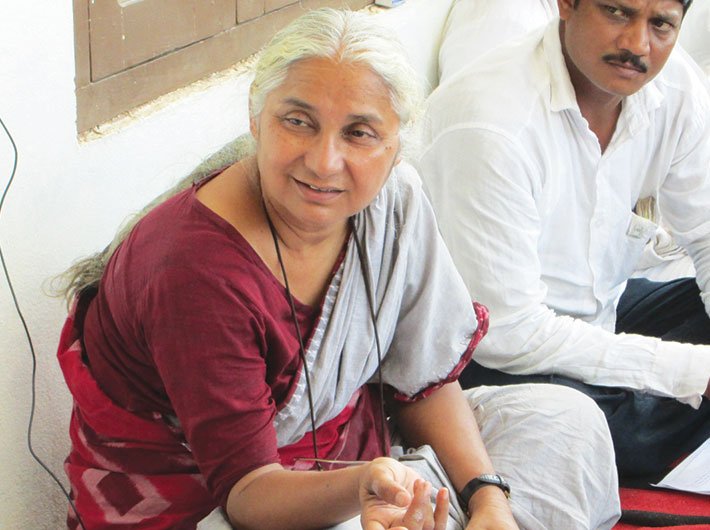Now that the SC has given the judgment for returning the land of the farmers in Singur, does this guarantee similar rulings for farmers protesting against acquisition of land in other parts of the country?
There are no such guarantees. Different benches are giving different judgments. In fact, since the Land Acquisition Act, 2013 came into being, 25 judgments have come on ‘public purpose’ and all are different. Everything has to be fought and fought and fought. Look at the Sardar Sarovar Project. It is the 31st year of our fight and we are still fighting. As for this judgment, it is by one bench. All benches should appreciate it. All benches of the apex court and other courts should speak in one voice on land acquisition.
So what is the significance of the judgment?
It is as historic as the Singur farmers’ movement was. It is significant for mainly two reasons: First, it takes a stand on protecting fertile agricultural land, and does not discriminate between those farmers who received compensation and those who refused to take it. When we went to Singur in the beginning of the protests, we were arguing that the land being taken from farmers was not barren but fertile. I, Mahasweta Devi and all activists of the Singur movement were present. We took pictures in the fields to prove that fertile land was being taken when barren land was available.
Secondly, the movement succeeded as most farmers remained firm on their stand. While nearly 1,000 acres of land was taken, owners of about 400 acres refused to accept compensation. The others were under pressure to take it. The judgment will now help all the owners get back their land.
What was the role of the West Bengal government?
One should first salute the farmers who bravely fought, even without taking compensation. But this ruling would not have been possible if the Mamata Banerjee government had not supported the petition in court. The best part is that the Left parties are also now on our side.
But wasn’t the Singur situation created by the Left?
The Left has however been part of the fight against the retrograde land ordinance of the Modi government and it opposed all the three ordinances along with movements and other parties.
So what should we expect now?
What we must have now is political unity, at least in Bengal, on land issues. The reason is that in Madhya Pradesh, Rajasthan and other BJP-ruled states, land legislations have been made which are exact replicas of the anti-farmer Modi ordinance. Hence, political unity is very essential.
The judgment is being seen as anti-industry and anti-industrialisation. Is that true?
It won’t come in the way of industry. Industry and agriculture should complement each other. Aren’t they both meant for the good of society?
Can’t Tata Motors appeal against the judgment?
I feel that the Tatas should also welcome the judgment. They should show that they are different from the stereotypes that we see in the industrial sector
Even according to the 2013 Act, land not used should be returned to the original owners. Is that helping anyone?
About 40,000 hectares were acquired from various people for the Sardar Sarovar Project. According to the 2013 Act, they are all owners again as the government never took possession of the acquired land. The Indore high court has even stayed the acquisition. Now if the government of Madhya Pradesh wishes to get that land, it has to acquire it again, take consent, and so on.
(The interview appears in September 16-30, 2016 edition of Governance Now )

